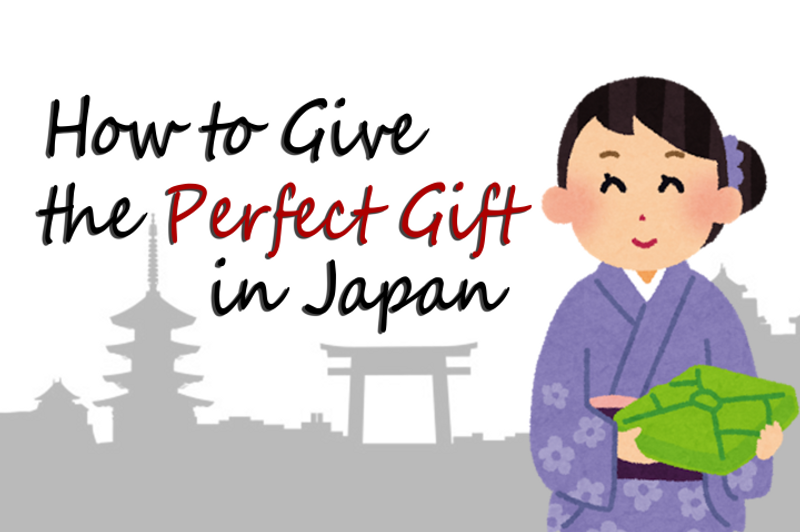Apr 28, 2017
Gift Giving Guidelines in Japan

Giving gifts are an incredibly important part of Japanese culture and presents are given for so many different occasions. In fact, gift giving in Japan is taken so seriously that it's not only seen as common courtesy, but a social obligation as well.
Of course, like any gift giving culture, there are a certain number of rules that one needs to follow. So let's take a look at some of the etiquette involved in presenting presents to all types of people for all types of occasions.

If you're a visitor to Japan who plans on giving gifts to someone, a small present or souvenir from your hometown is greatly appreciated. And because Japanese people receive gifts all-year-round, it's best not to overload the gift-receiver with too many trinkets. Therefore, something edible from your home country is probably the best gift you can give.
The price of the present is also not as important as the meaning behind it. However, expensive gifts will still be appreciated (and are not viewed as a forms of bribery).
It's a good idea to avoid gifts that include the numbers four and nine, as well as potted plants, lilies, lotus blossoms, and camellias - as there are a number of superstitions involving these gifts.

The presentation of the gift is also often as important as the gift itself, so make sure that any present is nicely wrapped. Although the color of the wrapping has become less and less important in modern Japanese culture, you can still use this handy guide to really impress your Japanese friends.
In many countries, we often give gifts at the beginning of our interactions. But in Japan, it's far more polite to wait until later in your meeting to present the gift to your host. This not only shows politeness before jumping in, but it also highlights how much you value your relationship over the gift.
In terms of actually handing over the gift, it's best to use two hands and insisting on the present if the recipient refuses. This is because it's often polite in Japanese culture to decline a gift at least once or twice before accepting.
You should also say the words "tsumaranai mono desu ga..." (つまらないものですが・・・) This literally translates as "It’s something boring, but please accept it" - a phrase that once again highlights the importance of your relationship over the importance of the gift itself.

If you are on the receiving end, then remember not to immediately rip the gift open as soon as you receive it. You see, in Japanese culture (unlike Western cultures) it's more polite to wait until you are in private before opening a gift. If the gift in not wrapped, then it's good to thoroughly thank the giver for the gift.
Once again, it's polite in Japan to refuse the gift once or twice before officially accepting it. However, not many Japanese people expect you to know this, so don't worry about it too much.
It's also common to reciprocate gifts that were given for special occasions - even if the return present is given months later, it's still considered better to be late than never.
I'm a South African working and living in Tokyo, Japan. I'm an avid traveler and I want to document my travels around Japan and South East Asia.
boothinjapan.wordpress.com



0 Comments